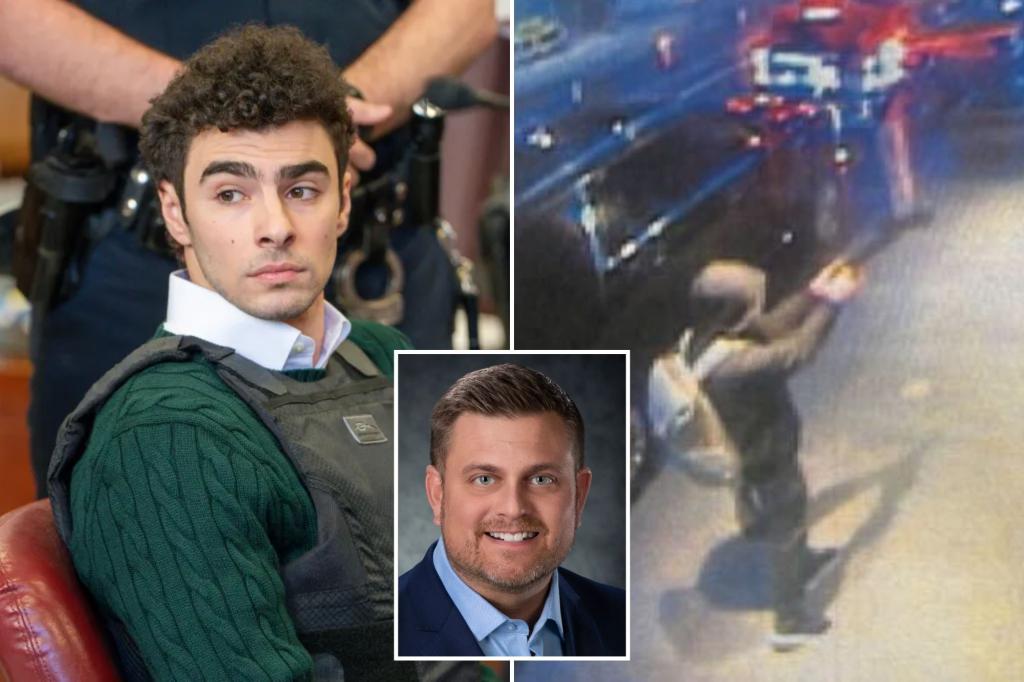The Controversial Case of Luigi Mangione: Murder, Manifestos, and Legal Battles
Luigi Mangione, a 27-year-old Ivy League graduate from a prominent Baltimore family, is scheduled to appear in Manhattan court on Tuesday for a critical hearing that may determine whether jurors will see his personal diary—a document prosecutors claim contains explicit plans to murder UnitedHealthcare CEO Brian Thompson. This hearing represents a pivotal moment in a case that has shocked the public and raised questions about political violence, mental health, and the justice system. Mangione stands accused of assassinating Thompson on December 4, 2024, in Midtown Manhattan on the day of UnitedHealthcare’s investor conference, an act prosecutors have characterized as terrorism. The alleged killer’s writings suggest ideological motivations, as he reportedly described wanting to kill the “greedy” healthcare executive to draw attention to an industry that “extracts human life force for money”—language that reveals a deep-seated animosity toward corporate healthcare and capitalism more broadly.
The legal battle currently centers on a red notebook, a partially 3D-printed pistol, zip ties, and rolls of duct tape discovered in Mangione’s backpack when he was apprehended in Altoona, Pennsylvania, following a five-day manhunt. Mangione’s defense team is fighting to suppress these items from trial evidence, arguing that Pennsylvania police violated his constitutional rights by conducting a search before obtaining a warrant. The Manhattan District Attorney’s Office, led by Alvin Bragg, contends these materials are crucial evidence in what they describe as a premeditated “act of terrorism” against a father of two executed in broad daylight. The contents of the notebook allegedly reveal Mangione’s detailed planning and motivations, including an October 22 entry where he fantasized about news coverage of the murder, writing: “The point is made in the news headline Insurance CEO killed at annual investors conference. It conveys a greedy bastard that had it coming.” This stark language provides a window into the suspect’s mindset and potential ideological motivations.
Tuesday’s hearing before Manhattan Supreme Court Judge Gregory Carro may also establish a trial date and address several other crucial matters in this high-profile case. Mangione’s legal team has requested that the state’s case be paused until after his separate federal murder trial, which potentially carries the death penalty. The University of Pennsylvania graduate faces serious charges in both jurisdictions, with the Manhattan case charging him with murder as an act of terrorism—a conviction that could result in life imprisonment without parole. Mangione has pleaded not guilty to these charges, maintaining his innocence despite the substantial evidence prosecutors claim to have gathered against him. The hearing, scheduled for 9:30 a.m. at Manhattan Supreme Court, represents another step in what will likely be a lengthy and complex legal process that has already captured significant public attention.
Another contentious issue likely to arise during Tuesday’s hearing is whether Mangione will employ a psychological defense strategy—a legal approach that could potentially reduce his prison sentence if successful. The Manhattan District Attorney’s office has accused Mangione’s attorneys of missing a deadline to disclose whether they intend to pursue this defense. For his part, Mangione argues that revealing his defense strategy to Manhattan prosecutors at this stage would “compromise” his position in the federal case. This strategic maneuvering highlights the complex interplay between the state and federal prosecutions, and the high stakes involved for the defendant who faces the possibility of either life imprisonment or the death penalty, depending on the jurisdiction and outcome of his trials.
Mangione’s background adds another layer of complexity to this already multifaceted case. Coming from a wealthy, well-known Baltimore family and having graduated from the prestigious University of Pennsylvania, Mangione’s path to alleged violent extremism raises questions about radicalization among the privileged. Reports that he has expressed admiration for Theodore Kaczynski, the infamous “Unabomber” who conducted a nationwide bombing campaign against people involved with modern technology, suggest a potential ideological framework for his alleged actions. This apparent radicalization of an educated, privileged individual toward violent anti-capitalist extremism presents a troubling case study in how destructive ideologies can take root across socioeconomic boundaries. The contrast between Mangione’s privileged upbringing and the violent crime he stands accused of committing has become a focal point of public fascination with the case.
As this case progresses through the legal system, it touches on numerous contemporary issues including corporate power in healthcare, political violence, mental health, and criminal justice. The prosecution’s framing of the murder as terrorism rather than a conventional homicide elevates the case beyond an individual act of violence to one with potential political dimensions. Meanwhile, the defendant’s reported writings suggest deep ideological motivations tied to critiques of healthcare profiteering and capitalism more broadly. Whether Mangione acted out of genuine political conviction, mental disturbance, or some combination of factors remains a central question that may be explored at trial. Regardless of the outcome, this case illustrates the extreme manifestations of anti-corporate sentiment in an era of growing discontent with healthcare costs and access in America. Tuesday’s hearing represents just one step in a legal journey that will likely continue to captivate public attention as it unfolds in the months ahead.


